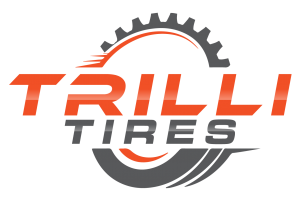
6 Essential Considerations in Choosing Tires for Your Car
The tires on your car add to its overall appeal. Aside from your driving style and budget, here are the factors that you must consider when looking for a new set of tires for your car.
Compatibility with your vehicle
Check your owner’s manual to see a list of compatible tire types. You can also check your tire’s sidewall for key characteristics that give clues on tire compatibility. It’s best to use the same tires on each position to maintain control and optimal performance throughout your ride.
Tire size is one of the crucial details on the sidewall, and it shows numbers that correspond to the tire’s width, diameter, and aspect allotment. The width comes in three digits that quantify the measurement from one sidewall to another in millimeters. Likewise, the ratio can be a two or three-digit percentage that dictates the proportion between height and width. On the other hand, the diameter is measured in inches that must match the car’s wheel size.
Construction, load index, and speed rating
The letter R in the tire indicates the material used for its construction. Cross-ply tires were the standard option until the 1970s, and they have since become rubberized cord plies for its casing. However, this tire type gave way to radial tires that have perpendicular cords that run in a circular shape when viewed from the side.
Tires also have a load index, which indicates its capability to support the vehicle’s load. Check the index to determine its weight and multiply it by the number of tires in the car to get the total capacity. Meanwhile, the speed rating reveals the top speed the tire can support. Tires with higher maximum speeds absorb wear and tear faster. Therefore, the grade must be as high as the car’s maximum.
Tire pressure
The manufacturer provides details on ideal tire pressure to make the car run smoothly. However, using tires that are near its maximum pressure will change the vehicle’s performance and escalates tire wear. Likewise, always check the sidewall for important information like size and safety codes that meet common tire standards.
Varying tire treads
Choose a tire that suits your driving style and your budget. If you are looking for a comfortable ride, choose tires with treads that minimize noise. However, these tires are suitable for paved roads only because the soft rubber increases wear and tear.
Meanwhile, treads with lower resistance for rolling improve fuel mileage. Driving on unpaved or off roads call for tires with sidewall protection. Specialty truck tires like mud tires provide traction for different terrains. Take time to adjust to your new set of tires primarily if you used a different brand previously because new tires give a different reaction when accelerating and braking.
Tires depending on the season
Since driving conditions vary throughout the year, you must consider the prevailing climate where you live. You may be better off alternating between summer and winter tires or opt for all-season tires instead.
Winter tires have treads that are effective in withstanding snow and freezing temperatures. They also offer better handling and braking on icy roads. On the other hand, summer tires provide better grip and braking on dry roads. They can also handle slippery roads following heavy rain.
All-season tires work for drivers who live in regions with mild winter conditions and other weather types except for excessive freezing. Since they work well in most weather conditions, this set of tires can save you expenses for seasonal changes.
Original or OEM
Your car often comes with pre-installed tires chosen by the manufacturer. These sets of tires meet their standards after going through rigorous tests, and you’re better off using the same type when a tire change is due. Meanwhile, some drivers choose OEM tires because it is often the readily available stock.
If you’re looking for a one-stop tire shop for your car, get in touch with us to see how we can help.


